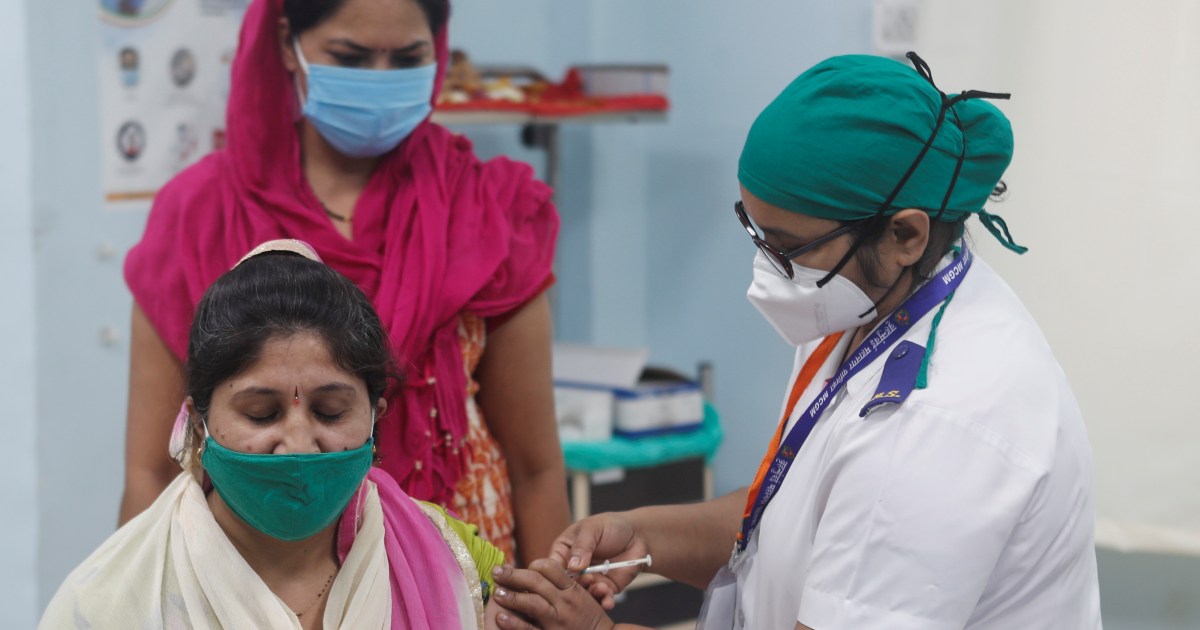
The World Health Organization (WHO) plans to approve several COVID-19 vaccines from Chinese and Western manufacturers in the coming weeks and months, according to a document released Wednesday, as the World Health Agency aims to rapid release of vaccines to the poorest countries.
COVAX, a global scheme co-led by the WHO, wants to deliver at least two billion doses of COVID-19 worldwide this year, with at least 1.3 billion to poorer countries.
But so far the facility has struggled to get enough shots due to a shortage of funds, while rich nations have reserved large volumes of vaccines.
In the race to deploy vaccines, regulatory approvals are key to confirming vaccine efficacy and safety and increasing production. But some poorer countries rely mainly on WHO authorizations, as they have limited regulatory capacity of their own.
Therefore, the WHO “speeds up” emergency approvals, according to an internal document of COVAX seen by the news agency Reuters.
The COVID-19 vaccine developed by AstraZeneca and manufactured by the Serum Institute of India (SII) could be authorized by the WHO in January or February, according to the document.
The same vaccine produced in South Korea by SK Bioscience could be approved by the UN agency in the second half of February, at the earliest, according to a provisional timetable published by the WHO.
In addition to vaccines, regulators usually authorize their manufacturing processes at different plants.
SII chief executive Adar Poonawalla told Reuters last week that he expected WHO approval “in the next week or two”.
AstraZeneca did not respond to requests for comment, while SK Bioscience said it was unaware of the WHO approval schedule.
The AstraZeneca vaccine, developed with Oxford University, has already received emergency approval in the UK, while decisions in the European Union and the US are close.
COVAX has supply contracts with AstraZeneca and SII for about 400 million doses and an option for many more hundreds of millions, although the timing of deliveries is uncertain.
Other western shots
The WHO authorized the vaccine developed by Pfizer and its German partner BioNTech in late December.
WHO officials have said they are seeking a supply deal with the US pharmaceutical giant, which this year has already committed hundreds of millions of doses to several rich countries.
COVAX had not initially included the Pfizer / BioNTech feature in its list for advance purchases.
Pfizer did not respond to a request for comment on whether an agreement was closed and whether it would only involve a limited number of doses this year.
The provisional approval schedule also shows that the WHO is expected to approve Moderna’s COVID-19 vaccine, which is based on the same messenger RNA (mRNA) technology as Pfizer, in late February.
Modern, whose vaccine is already approved in many Western countries, including the United States and the European Union, made no immediate comment.
The vaccine developed by Johnson & Johnson (J&J), which has a non-binding agreement to supply COVAX with 500 million doses within an unspecified timeframe, is expected to get WHO approval in May or June as soon as possible. , according to the WHO document.
J&J has not yet released the results of the phase III clinical trials of its vaccine, but the EU has said it expects the company to apply for approval as early as February.
A J&J spokesman did not respond to any requests for comment.
China and Russia
The WHO is also considering possible rapid approvals for two Chinese vaccines, according to the provisional schedule.
Sinopharm and Sinovac have submitted their applications to the WHO, which is reviewing them and could make decisions on both in March, he says first.
Neither vaccine was selected by the WHO for possible advance purchase offers. WHO approval does not automatically entail purchases by COVAX. It could also facilitate release to the poorest countries that acquire vaccines directly.
Sinopharm has submitted applications for two COVID-19 vaccines, but the possible approval in March refers only to that developed by its Beijing-based subsidiary, Beijing Institute of Biological Products Co., Ltd. (BIBP), which is already ‘has been widely used for inoculations in China.
Sinovac has not yet published the global results of its phase III trials, but its vaccine has been approved for emergency use in countries such as Brazil, Indonesia and Turkey.
Sinopharm and Sinovac did not respond to requests for comment.
There is still no provisional timetable for the possible approval of Russia’s Sputnik V vaccine, although its developers have submitted the relevant documentation, according to the timetable.
The Russian Direct Investment Fund (RDIF), the main financial financier of Sputnik V, did not respond to any requests for comment.